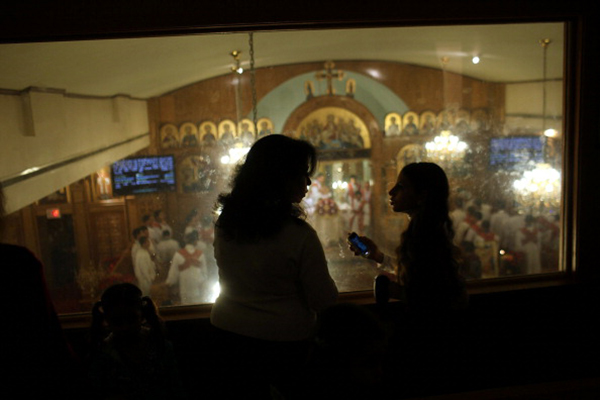
By Engy Magdy, Special to The Tablet
CAIRO — Late last month, an Egyptian higher court granted a Coptic Christian woman equal inheritance with her brothers, overturning the rulings of two lower court judges.
The verdict counters Sharia law, under which a woman receives only half the inheritance as male heirs do. Sharia law is the basis for much of Egyptian law, and so any ruling that upholds the rights of someone who belongs to a minority religion is potentially groundbreaking.
Hoda Nasrallah, a human-rights lawyer, sued after her father died last year on the grounds of Coptic Christian doctrine. Her two brothers have supported her case.
Their father left behind a four-story apartment building in Cairo and a bank deposit, according to the Associated Press. Nasrallah tried to get an equal share, citing the bylaws of the Coptic Church. But two judges ruled against her. She appealed to a higher court, which sided with her.
Many Coptic families settle inheritance matters outside of the legal system, but in many cases, Coptic families deliberately usurp the inheritance of women because they prefer to benefit from the Islamic laws, Nasrallah said.
There are about 10 million Coptic Christians in Egypt, about 10 percent of the country’s population.
The ruling follows the near signing earlier this year of an agreement between Egypt’s three main Christian denominations — Coptic, Catholic and Evangelical — to have a unified “personal-status law,” or a law that would establish rules for Christians in Egypt regarding family matters such as marriage and divorce.
But the denominations haven’t reached a full agreement yet over the issue of divorce, and according to the AP, the personal-status law doesn’t apply to inheritance. Samuel Tadros, a senior fellow at the Center for Religious Freedom at the Hudson Institute, a conservative U.S. think tank, said the higher court’s ruling in this case may be limited, because her brothers supported her.
“In Hoda’s case there was no contest. Her brothers joined in her demand. So if the court simply found no objection and hence ruled in her favor, the case’s scope would be very limited,” Tadros wrote on his Twitter account.
“But if the court reasoning cited the constitutional clause that grants Copts the right to restore to their personal status affairs, then this is a huge thing,” he added.
Peter Al Nagar, a Coptic lawyer, said that Egypt does have a regulation related to inheritance for Copts based on the Christian doctrine of equality but that courts “prioritize the Islamic law.”
“We call for an executive order from the Minister of Justice to activate the provisions of the articles of the law which is already in place” he said.
